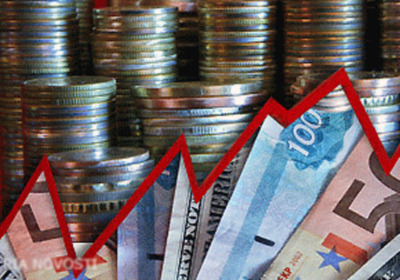Russia Sees Biggest Decline in Wages, Retail Sales Since 1999

(Bloomberg – bloomberg.com – Anna Andrianova – November 19, 2015)
Russian wages and retail sales declined by the most since 1999, a sign consumer demand will remain a weak link in the economy’s efforts to break out of its first recession in six years.
Real wages fell 10.9 percent in October from a year earlier, a deeper contraction than the median estimate by economists for a 9.7 percent decrease, the Federal Statistics Service in Moscow said Thursday in a statement. The office revised down September’s wages contraction to 10.4 percent. Sales declined 11.7 percent from a year earlier after shrinking 10.4 percent the previous month. That compared with forecast of a 10 percent drop.
Russian consumption, battered by persistent inflation and a weaker ruble, is lagging improvements in industry that propped up the economy last quarter. The loss of purchasing power is deepening the prospect that the recession will extend into next year as a glutted oil market leaves little hope for a recovery in crude prices to ignite growth.
“It is more like crawling out of the recession rather than rebounding,” Liza Ermolenko, a London-based analyst at Capital Economics Ltd., said by phone before the data was released. “In consumer-facing sectors, the situation is still extremely difficult. Inflation is slowing down much slower than expected, meaning that real incomes are still falling very sharply.”
Ruble, Inflation
The ruble is down 4.1 percent against the dollar in the past month, bringing its loss in the past year to about 30 percent after the central bank allowed the currency to trade freely.
Real disposable incomes fell 5.6 percent in October from a year earlier after contracting a revised 4 percent in September, the statistics service reported.
The median of eight estimates in a Bloomberg survey was for a 5.8 percent decline. Fixed-capital investment slipped for a 22nd month, falling 5.2 percent after a 5.6 percent drop in September.
The decline in capital spending isn’t yet past its low point and the prospects for a revival in consumption and investment remain “questionable,” economists at the central bank’s research and forecasting department said in a report last week.
Inflation is likely to ease below 13 percent by year-end, with gross domestic product contracting no more than 3.7 percent this quarter, Economy Minister Alexei Ulyukayev said Wednesday. GDP shrank 4.1 percent in the third quarter from a year earlier after falling 4.6 percent in April-June. Annual inflation eased to 15.6 percent in October, down from a 13-year high of 16.9 percent in March.
“It now appears that Russia’s recession may have bottomed in the second quarter,” Olga Sterina, an analyst at UralSib Capital in Moscow, said in a report. “However, consumer demand still appears to be very weak.”
Article ©2015 Bloomberg L.P. All Rights Reserved. Article also appeared at bloomberg.com/news/articles/2015-11-19/russia-sees-biggest-decline-in-wages-retail-sales-since-1999
